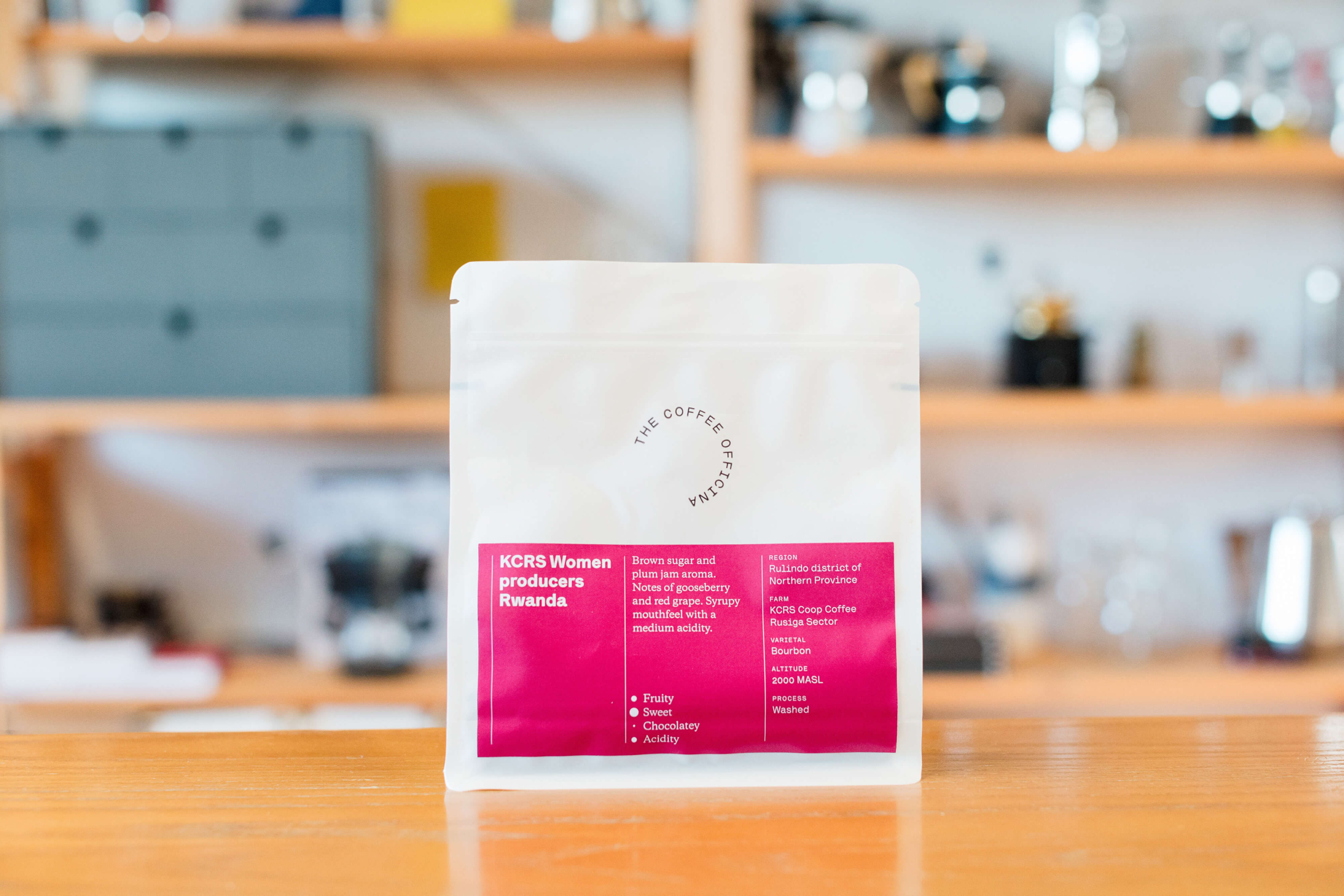As we wind towards the festive period, the minds at TCO have been considering our usual Christmas Coffee slot. In previous years, this has taken the form of an interesting single origin or a playful blend of coffees, and we often make an effort to showcase an existing relationship. This year, we are proud to showcase the Rwanda KCRS Womens’ Cooperative. Those of you who are familiar with our products will recognise this offering, now in its third iteration with us. This is a wonderful example of a fully washed Rwandan coffee with a delightful array of sweet, fruity and floral notes.
While the cup is fantastic, we absolutely love the work KCRS does to empower equality for the women of the cooperative. This coffee is exclusively produced by women smallholders, with the support of the Kinini Washing Station. KCRS began when our longtime colleague, Jacqueline Turner (Head of Kinini), was approached by several women, and asked if she could help them form a cooperative. She promised them that the coffee would be marketed in the name of the coop, helping build their identity as expert coffee farmers.
KCRS is very close to Jacquie’s heart and she believes that the empowering of women brings positive change to whole communities. One member, Marie-Chantel said “Before Kinini came along, we were just women and we had to stay at home. Now we get up, we go to work and we have a voice at home. We have gained respect in our homes. Our husbands respect us for who we are as people. We are equals now.” KCRS has changed many lives, providing a reliable income for their families and allowing them to have control over their own financial destinies.
Around 85% if smallholders associated with KCRS have farms about 2000masl on which they operate a complex rotation of 6 crops, on average. A mix, including legumes and sweet potato, is grown between the coffee trees, for both commercial and personal needs. In doing so, these smallholders not only spread their income across the year, but they also enrich the soils on their plots as a result of the poly-cropping. The KCRS support network provides a route to selling the coffee crops, and also to acquiring stability if an individual is struggling.
This coffee is produced using a fully washed process, which is a little different to a typical washed process. Following pulping, the coffee has a 24-hour dry fermentation period before undergoing more traditional wet fermentation. This is followed by the typical soaking for 24-hours afterwards, similar to how Kenyan coffee is processed. The fully washed method constrains the effects of fermentation, yielding a syrupy bodied coffee that tends to hold up very well as it ages.
